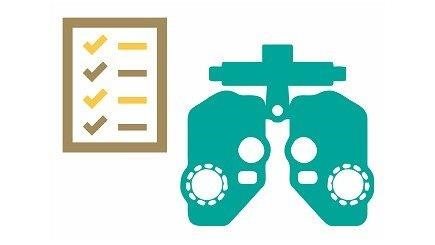3. Preparation for clinical settings
As learners move to work-based clinical learning, they will need to prepare for more challenging scenarios. This may include setting an example to others.
Learner outcomes:
- Understanding of what ‘good supervision’ looks like
- Improved appreciation of the scope of practice of others
- Ability to apply teamwork strategies in a case-based scenario
- Understanding of how to tackle conflict
- Increased awareness of ‘real-world’ challenges

Session ideas:
Mock it upSimulated MDT meeting - set up a mock MDT meeting in which learners assume different professional roles in a healthcare team and decide how to manage the patient's treatment. Benefit: improves communication, team working and problem solving and helps learners understand different professional perspectives. | Survival guide workshopInteractive workshop: Provide students with practical tips and ask them to create a “Top 10 Dos and Don'ts” list for placements. Invite a pre-reg. optometrist to attend and share their placement experiences. Benefit: Highlights the importance of adaptability and professionalism on placements. | Seeing eye to eyePresent ethical dilemmas in collaborative care: Provide an ethical dilemma scenario and assign learners different professional perspectives and ask them to debate the case. Benefit: Helps learners understand ethical challenges and conflicts they may face in a MDT setting. | Taking ownershipDefining good supervision: Ask learners to discuss “what does good supervision look like?” and how they can take ownership of their supervision. Benefit: Provides learners with strategies for getting the most out of supervision and how to seek feedback effectively through asking the right questions. |
At this stage:
Consider including sessions that:
- Teach the value of diverse perspectives and how to build trust within teams through problem-solving exercises and roleplay scenarios
- Provide a ‘safe place to fail’ and use mistakes as learning opportunities and a way to provide supportive feedback
- Familiarise learners with wider healthcare structures and language, to enhance their ability to integrate into multidisciplinary environments
- Give examples of when communication can go wrong and how to fix these problems
- Teach how to handle awkward situations and how to manage friction within a team
- Flag some of the challenges that learners need to anticipate and to highlight the importance of accountability, responsibility and good communication
- Allow learners to undertake interprofessional learning opportunities with other faculties, such as pharmacy or nursing, to teach collaboration and communication.